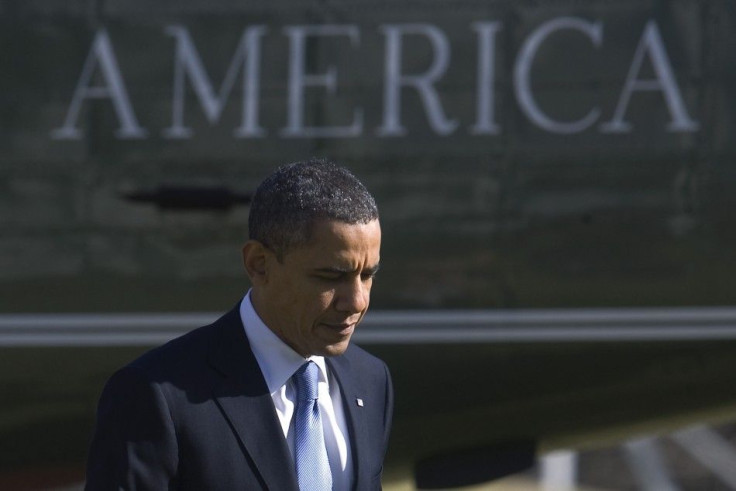Obama Approval Ratings Fall: What Do The Numbers Really Say? A Closer Look At Each Candidate's Viability

Poll results released on Monday show that President Obama's approval ratings have fallen to new lows.
Of the 1,009 people surveyed by CBS News and the New York Times between March 7 and March 11, only 41 percent think that Obama is doing his job well. By contrast, 47 percent disapprove of his performance.
The published report includes results dating back to Obama's inauguration in 2009, when the approval rating was up at 62 percent. Since that time, his approval rating has never been as low as it is today. It has fallen 9 points since last month, when it reached a benchmark (though not unprecedented) 50 percent.
However, a record low for approval does not translate into a record high for disapproval. According to this survey, disapproval has hit the current level of 47 percent several times since September of 2010, even reaching a full 50 percent for one survey in 2011.
This month, the high level of undecided respondents is a point of interest. As recently as February, only 7 percent of survey respondents couldn't decide whether Obama was handling his responsibilities well. But now, that number has grown to 12 percent. Indecision among American voters is growing quickly, making 'volatility' a better summation of survey results than 'disapproval.'
That's no surprise in today's political environment -- voters face a mixed bag of good signs and bad omens, promising news and dire predictions. A slow rise in consumer confidence is pitted against disappointment over rising gas prices. Reports of an expanding job market are mitigated by still-high unemployment rates. Renewed turmoil in Afghanistan contributes to continuing erosion of the goodwill that the president enjoyed after the death of Osama bin Laden.
Until the election, both Democrats and Republicans will be doing their best to highlight whatever news most conveniently suits their arguments on any given issue.
For more insights into how these numbers will translate into actual votes, CBS and the New York Times also asked whom respondents would vote for in four possible general election scenarios, pitting Obama against Newt Gingrich, Ron Paul, Mitt Romney and Rick Santorum.
In every one of these hypothetical November 2012 contests, Obama came out on top. He beat Gingrich most handily, outpacing the former house speaker by 14 percentage points. Paul fell short by 10 points.
Santorum and Romney seem to be nearly neck-and-neck in terms of general election viability, but in this poll Romney bests his closest Republican rival. In a popular vote, he'd garner three less percentage points than Obama, as opposed to Santorum's losing-margin of four.
Responses to Republican-only questions were consistent with these findings. When asked point-blank which candidate has the best chance to win against Obama, a full 57 percent of them went with Romney.
Interestingly, those same Republican voters did not side with Romney on a personal level. When the survey prompted them to choose which candidate best represented their own values, only 25 percent chose the former Massachusetts governor. Santorum, on the other hand, won a whopping 47 percent.
Moving forward, candidates will do well to focus on domestic issues. Of respondents, 26 percent said the economy is the most important problem facing the country today. Another 25 percent chose jobs. Next on the list were politicians-government, budget deficit and health care. For survey respondents, the importance of these issues beat out topics like immigration, defense and foreign policy.
© Copyright IBTimes 2025. All rights reserved.






















